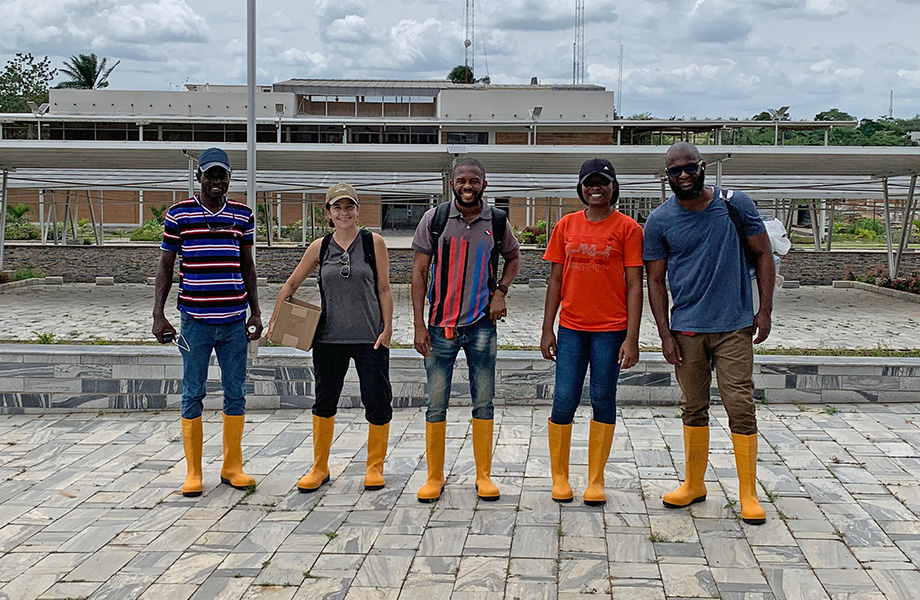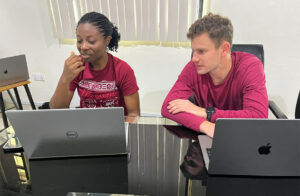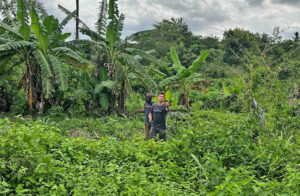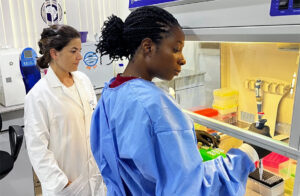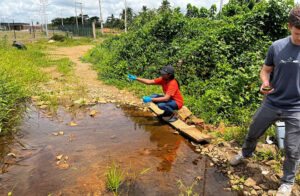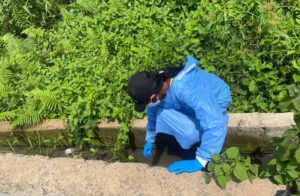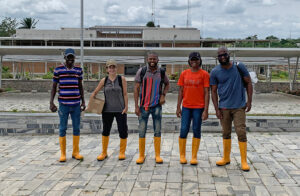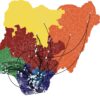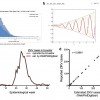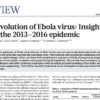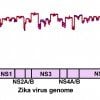Increasingly researchers have used wastewater surveillance as an effective tool to find out what viruses and which strains of viruses—for example, SARS-CoV-2 variants—are circulating within a community. Providing real-time insights into which diseases might be on the rise helps public health officials to detect and contain outbreaks before they become global pandemics.
In late Spring 2023, Scripps Research postdoctoral associates Joshua Levy, Holly Lutz and Edyth Parker from the lab of Kristian Andersen traveled to the central Nigerian town of Ede to work with graduate students and staff at the African Center of Excellence for Genomics of Infectious Diseases (ACEGID), housed at Redeemer’s University. Together, the team aimed to implement wastewater surveillance tools and procedures for viral pathogen detection.
“Ensuring local researchers have the tools and the expertise to effectively apply them on the ground helps us be better prepared to tackle emerging viral threats,” says Joshua Levy.
Andersen’s lab developed computational tools that allow for researchers to quickly identify what pathogens, such as SARS-CoV-2, Norovirus, Lassa, or even malaria, are present in wastewater samples. The team’s work in Nigeria included gathering samples from rivers and drainage from the Redeemer’s University campus and surrounding area, and training their Nigerian colleagues in the laboratory and bioinformatic skills needed to conduct in-depth analysis of the pathogens that are detected.
This type of international collaboration is key to staying one step ahead of the next potential pandemic virus. Levy and his colleagues are planning on increasing the number of pathogens that can be screened for using their tools and are already establishing new a collaboration in South Africa to expand their reach.
Photo credit: Joshua Levy, Holly Lutz and Precious Adeyemi


